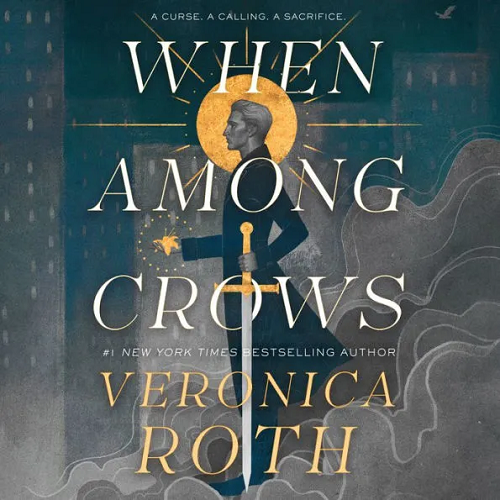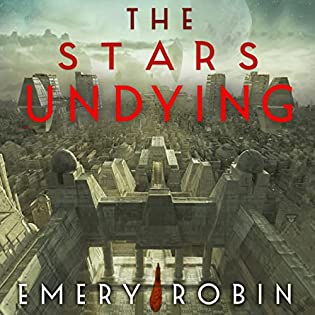 Graveyard Shift by M.L. Rio
Graveyard Shift by M.L. Rio Narrator: Jess Nahikian, Max Meyers, Si Chen, Susan Dalian, Tim Campbell
Format: audiobook, eARC
Source: supplied by publisher via Edelweiss, supplied by publisher via Libro.fm
Formats available: hardcover, large print, paperback, ebook, audiobook
Genres: Gothic, horror, mystery, thriller
Pages: 144
Length: 3 hours and 9 minutes
Published by Flatiron Books, Macmillan Audio on September 24, 2024
Purchasing Info: Author's Website, Publisher's Website, Amazon, Barnes & Noble, Kobo, Bookshop.org, Better World Books
Goodreads
Author of sales sensation If We Were Villains returns with a story about a ragtag group of night shift workers who meet in the local cemetery to unearth the secrets lurking in an open grave.
Every night, in the college’s ancient cemetery, five people cross paths as they work the late shift: a bartender, a rideshare driver, a hotel receptionist, the steward of the derelict church that looms over them, and the editor-in-chief of the college paper, always in search of a story.
One dark October evening in the defunct churchyard, they find a hole that wasn’t there before. A fresh, open grave where no grave should be. But who dug it, and for whom?
Before they go their separate ways, the gravedigger returns. As they trail him through the night, they realize he may be the key to a string of strange happenings around town that have made headlines for the last few weeks—and that they may be closer to the mystery than they thought.
Atmospheric and eerie, with the ensemble cast her fans love and a delightfully familiar academic backdrop, Graveyard Shift is a modern Gothic tale in If We Were Villains author M. L. Rio’s inimitable style.
My Review:
I almost saved this one for Halloween, because it’s just the kind of horror-adjacent book that I love to pick for spooky season. But it’s out this week – and I simply didn’t want to wait that long!
Even though this particular “graveyard shift” takes place in an actual graveyard, the story doesn’t start out all that creepy. Unhealthy, maybe, but not creepy.
The ‘Anchorites’ are a group of insomniacs who meet up at midnight in a graveyard for a quick smoke. The ancient but historically significant cemetery and the church it’s attached to just happen to be the only location in the middle of a busy college campus that is the requisite distance from ALL of the various campus entrances. It’s the only place where it’s OK to smoke that anyone attached to the campus can reach during the length of a typical work break.
Two of the ‘Anchorites’ hang around because they work an actual night shift. Theo, the manager at a nearby bar, and Tamar, working her second job as a hotel night desk manager. Edie, the editor-in-chief of the college newspaper, is too stressed out hunting for the paper’s next story to sleep. Tuck, a washed-out grad student with no place to go, is squatting in that derelict church and can’t resist the temporary camaraderie. Hannah, a rideshare driver, has had chronic insomnia for so long that she doesn’t seem to sleep at all.
The graveyard hasn’t been used – except by desperate smokers – in at least a century. They’re safe smoking in the middle of campus in the middle of the night. Or so they assume.
Until the night when they arrive for their not-exactly-arranged, never-truly-spoken-about, midnight rendezvous – and discover a freshly dug grave in the middle of their usual meeting place. Led by editor-in-chief Edie, they can’t resist speculating about whodunnit? Or perhaps this time it should be ‘who dug it?’
A question that gets answered when the gravedigger comes back, dumps a load of dead lab rats in the grave and covers it over – while they collectively hide all around and watch.
This game really is afoot – and so is one escaped lab rat making a literal meal out of one of the petrified Anchorites.
From there the story is off to a surprisingly twisted race, as Edie sees a story that might win her and her paper a prestigious award, Tamar sees a chance to use her library degree and her research talents for something other than merely checking in hotel guests or checking out books, Tuck sees an opportunity to use his experience with scientific laboratories and his knowledge of mycology to investigate a rogue project, while Theo sees a way to help the only friends he has. Hannah, however, seeks revenge on the people who gave her hope – and then snatched it away.
What they’re going to get is likely to be considerably more than any of them imagined, for good and definitely for ill.
Escape Rating A: Graveyard Shift wasn’t at all what I was expecting – it was better! It’s not really horror, although very Gothic in tone in spite of its contemporary setting, at least until the very, very end where the reader is left wondering – as are a couple of the characters.
But as it goes, it sucks the reader – or listener in my case – into this story, every bit as much as the ‘Anchorites’ get sucked into following Edie in pursuit of the potential newspaper story.
That story is told as snippets of the night, each slice of time from a different character’s point of view. This worked even better in the audio, as the five characters are voiced by five different narrators. (Insert here my usual rant at the lack of information about who voiced whom. As a group, Jess Nahikian, Max Meyers, Si Chen, Susan Dalian and Tim Campbell did a fantastic job but I very much wish I knew who voiced which part.)
One of the things that makes this story so riveting is the way that the tension seems to build almost minute by minute – and how we’re inside each character’s head as they experience their particular slice of that tightening noose. Particularly as the investigation continues feverishly through the single night of the story, and the identity of the person or persons who are about to get hung out to dry – figuratively if not literally – zeroes in on the real target.
Even as the group of investigators gets deeper and deeper into their own personal fog of jittery exhaustion.
I got caught up in this story in multiple ways. I always love a good story about an investigation – and this was definitely that. While Edie, the editor is at first idly speculating, she does have the threads of a big scoop in her hands – even if her moral compass has been knocked more than a bit askew after chasing stories for so long. There is something rotten going on, and it needs to be brought out into the light.
The ‘Anchorites’ as a group are fascinating, and part of that fascination is in their unacknowledged interconnectedness. They ARE friends, but they are each so used to being friendLESS that they’re pretty much incapable of acknowledging that fact. The way the telling of the story bounced from one to the other keeps the story hopping and the reader on their toes.
That the guilty parties got their comeuppance in the end was absolutely righteous, and the way that the story ended with just that shivery touch of frightening possibility made for the icing on a deliciously creepy horror-adjacent, Halloween-anticipatory reading cake. I’ll certainly be looking for the author’s next book, Hot Wax, when it comes out in January.

 When Among Crows by
When Among Crows by  At the same time, the way this story drew in so many Slavic myths and legends that I itched for a mythopedia (I was driving, that would have had terrible consequences) reminded me, a lot and very fondly, of Neil Gaiman’s
At the same time, the way this story drew in so many Slavic myths and legends that I itched for a mythopedia (I was driving, that would have had terrible consequences) reminded me, a lot and very fondly, of Neil Gaiman’s  The Stars Undying (Empire Without End, #1) by
The Stars Undying (Empire Without End, #1) by 